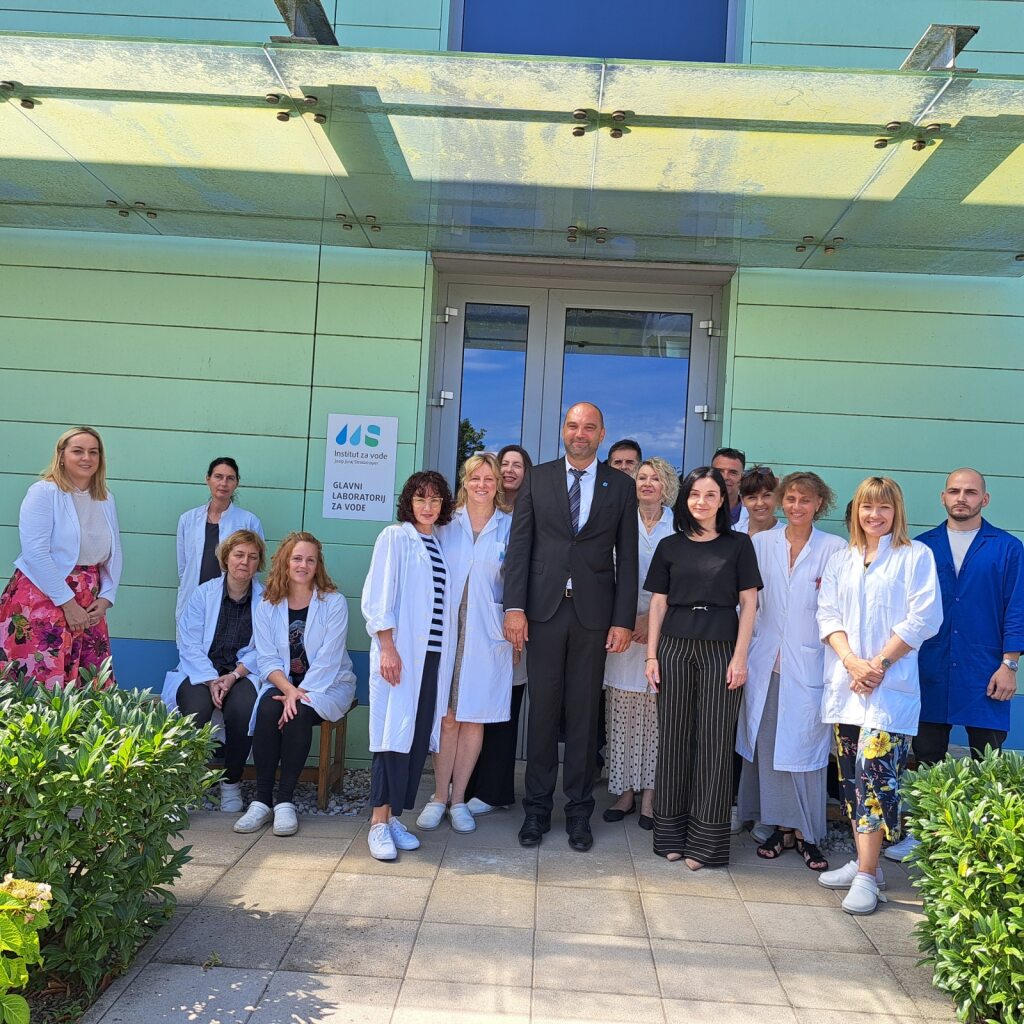Minister Vučković during a working visit to the Institute's Main Water Laboratory


On 29 July 2024, the Ministry of Environmental Protection and Green Transition, Marija Vučković, visited the Institute’s Main Water Laboratory. The Minister was accompanied by State Secretary Anja Bagarić. The director of the Institute, Mario Šiljeg, and the head of the Main Water Laboratory, Draženka Stipaničev, introduced the minister to the activities and work of the Institute and the Main Water Laboratory, which has been designated as the official laboratory for sampling and conducting analyses as part of water monitoring and other official water controls.
The Head of the Main Water Laboratory presented the tasks of the Main Water Laboratory, which include ensuring reliable data and objective analyses on the state of water quality, as well as coordinating and consolidating the results of water monitoring analyses.
The laboratory carries out a range of tasks in the implementation of water quality monitoring, pollutant monitoring and wastewater monitoring. These include field work in sampling and laboratory work in sample analysis, checking the results of other laboratories for the Institute’s needs, interventions in the event of exceptional and sudden pollution incidents (both at expert and operational level), data collection, systematisation and processing, and the conversion of data into information. The Main Water Laboratory participates in the identification of unknown hazardous substances in water to complement national regulations and collaborates with other authorised laboratories, universities, scientific research institutions and authorities.
During her working visit, Minister Vučković visited the Biological Testing Service, the Inorganic Indicators Testing Service, the Ecotoxicological Testing Service and the Organic Indicators Testing Service, where the staff gave an overview of the activities and a more detailed insight into the analytical instrumental techniques.
One of the most important analytical techniques is gas chromatography in combination with mass spectrometry, which is specially adapted to the needs of the Institute and is unique worldwide. It enables an increase in capacity by analysing up to 250 water samples per month and significant savings in the consumption of organic solvents, all in line with green technologies and the goal of reducing hazardous waste.
Director Šiljeg also informed the Minister about the Institute’s activities that go beyond water monitoring. Particular attention is being paid to the establishment of a national educational centre for water management and a large number of international projects that are currently being prepared and commissioned.
Minister Vučković expressed support for the work of the Institute, especially for the activities that will help reduce water losses in water supply systems through educational activities, as well as for the monitoring of microplastics and other parameters related to the impact of the ever-increasing climate change on water.